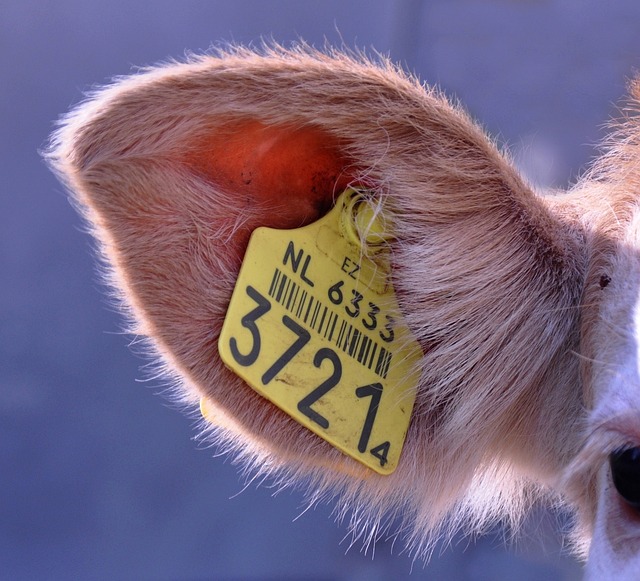The unique 17-char Vehicle Identification Number (VIN) reveals a car's history, including accidents, repairs, and ownership changes, crucial for informed buying decisions when purchasing used vehicles. Fraudulent titles are a growing concern, with scammers altering records or creating false ones. States are responding by introducing stricter VIN verification processes to combat this issue. To protect yourself, conduct thorough VIN inspections and use Vehicle History Reports, which provide detailed ownership, accident, and maintenance records. Reputable dealerships with certifications like NADA offer transparent histories and encourage pre-purchase inspections.
Considering buying a used car? Don’t let a seemingly perfect deal turn into a costly mistake. With the rise in fraudulent titles, protecting yourself is more crucial than ever. A Pre-Purchase VIN Inspection can be your best defense, revealing a vehicle’s hidden history and preventing you from purchasing “someone else’s headache.” This article guides you through understanding Vehicle Identification Numbers (VIN), the growing concern of fraudulent titles, the benefits of a thorough inspection, conducting a Vehicle History Report, and how new state regulations are fighting back. Learn how to stay ahead of scams and choose a reputable dealership for your peace of mind.
- Understanding VIN: Unlocking Vehicle History
- Rise of Fraudulent Titles: A Growing Concern
- Benefits of Pre-Purchase VIN Inspection
- How to Conduct a Vehicle History Report
- States Fighting Title Fraud: New Regulations
- Protecting Yourself: Staying Ahead of Scams
- Choosing a Reputable Car Dealership
Understanding VIN: Unlocking Vehicle History

Every vehicle has a unique identifier called a Vehicle Identification Number (VIN), which acts as a fingerprint for that specific car. It’s a 17-character code that reveals essential details about the vehicle’s past, including its make, model, year, and even history of ownership. By simply checking this VIN, you can access a wealth of information that could otherwise remain hidden.
A VIN inspection is crucial when buying used because it allows you to uncover potential issues or discrepancies. It can tell you if the car has been in accidents, whether major repairs have been done, and even if it’s been reported stolen. This simple step ensures transparency and gives you peace of mind, helping you avoid making a costly mistake.
Rise of Fraudulent Titles: A Growing Concern

In recent years, the automotive industry has faced a disturbing trend—an increase in fraudulent vehicle titles. Scammers are utilizing sophisticated methods to alter or create false records, making it easier for them to sell vehicles with questionable histories. This rise in fraud poses a significant risk to unsuspecting car buyers. According to reports, some states are now implementing stricter measures to combat this issue by enhancing VIN verification processes, ensuring that every vehicle’s identity is accurately traced and documented.
The ease of transferring titles digitally has unfortunately made it simpler for criminals to commit fraud. A simple alteration in documentation can mask a vehicle’s true past, leading to buyers facing unexpected problems like hidden damage, previous accidents, or even undisclosed mechanical issues. By conducting a thorough VIN inspection and utilizing Vehicle History Reports, car purchasers can gain valuable insights into a vehicle’s history, thus making informed decisions and avoiding potential pitfalls associated with fraudulent titles.
Benefits of Pre-Purchase VIN Inspection

Conducting a Pre-Purchase VIN Inspection offers numerous advantages for car buyers. Firstly, it provides peace of mind by revealing a vehicle’s complete history, including any accidents, repairs, or titles changes. This is crucial as it helps identify potential red flags that might indicate hidden damage or fraudulent documentation. By accessing detailed information about the VIN, buyers can make informed decisions and avoid purchasing a car with undisclosed issues.
Additionally, this inspection serves as a powerful tool to combat fraud. With the rise of fraudulent titles, a simple VIN check becomes an essential step in ensuring you’re not buying someone else’s problem. It allows you to verify the vehicle’s ownership history, preventing the possibility of buying a car that has been reported stolen or has outstanding loans attached to it. Thus, protecting yourself and your investment is made easier through this pre-purchase due diligence.
How to Conduct a Vehicle History Report

Conducting a Vehicle History Report by VIN is a straightforward process, but it’s crucial for making an informed decision when buying a used car. Start by obtaining the Vehicle Identification Number (VIN) from the vehicle’s registration or by checking the dashboard where it’s usually engraved. Then, use online services that specialize in running these reports. You simply enter the VIN into their system, and within minutes, you’ll receive detailed information about the car’s history, including its ownership records, accident reports, and any reported damage or issues. This can reveal previous accidents, repairs, or even potential fraud, giving you a clear picture of what you’re dealing with before finalizing the purchase.
These reports are comprehensive, covering various aspects such as odometer readings, title changes, and maintenance records. They help you verify that the car hasn’t been in any significant accidents and that its mileage is accurate. More importantly, they protect you from buying a car with a fraudulent or altered title, which can lead to legal complications down the line. By taking this simple step, you’re ensuring that your investment is secure and that you’re not inheriting someone else’s problems.
States Fighting Title Fraud: New Regulations

In response to the growing issue of title fraud, several states are implementing stricter regulations to enhance VIN verification processes. These new measures aim to combat fraudulent titles and protect consumers from unknowingly purchasing vehicles with a suspicious history. For instance, some states now mandate that dealerships and private sellers obtain and provide comprehensive Vehicle History Reports before finalizing a sale.
Additionally, there is a push for more rigorous background checks on individuals involved in the auto industry, including dealers and mechanics. Such regulations are expected to deter fraudsters by making it more challenging to alter or falsify vehicle titles. As these new standards take effect, buyers can rest assured that their interests are better protected, giving them peace of mind when purchasing a used car.
Protecting Yourself: Staying Ahead of Scams

Protecting yourself when buying a used car involves staying informed and proactive. With the rise in fraudulent titles, it’s essential to go beyond surface-level checks. A simple VIN inspection can reveal a wealth of information about a vehicle’s past—accidents, repairs, ownership history, and more. This proactive step ensures you’re not caught off guard by hidden issues or unexpected surprises.
By conducting a Vehicle History Report, you gain valuable insights that help you make an informed decision. It’s your shield against potential scams and a smart way to secure your investment. Stay ahead of the curve; remember, knowledge is power when it comes to buying a used car.
Choosing a Reputable Car Dealership

When buying a used car, selecting a reputable dealership is your first line of defense against potential headaches. A trustworthy dealer will prioritize transparency and customer satisfaction, offering vehicles with thoroughly checked histories. Look for certifications like National Auto Dealers Association (NADA) accreditation, which demonstrates their commitment to ethical practices. Reputable dealers also provide clear and detailed records of any repairs or accidents, ensuring you have a comprehensive understanding of the car’s past.
Additionally, choose a dealer that encourages pre-purchase inspections, including VIN checks. They should be open to answering your questions and providing all necessary documentation. Avoid dealers who seem evasive or pushy, as these attitudes could indicate potential issues down the line.
Buying a used car should be an exciting, not stressful, experience. By taking proactive steps like conducting a Pre-Purchase VIN Inspection and checking a vehicle’s history through its VIN, you can avoid costly surprises and ensure you’re making a smart investment. Stay ahead of fraud by understanding state regulations and choosing a reputable dealership. Protect yourself and drive with peace of mind.



